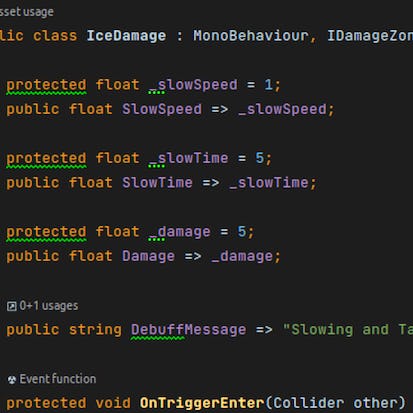- Level Beginner
- Duration 3 hours
-
Offered by

About
Programming of any kind, including in game-development, can get complicated as the size and scope of a project increase. Investigating bugs and expanding the code with new functionality can be almost impossible if the code-structure is not well-thought-out. In this one-hour, project-based course, we will cover the fourth principle of "SOLID" programming: Interface Segregation Principle ("ISP") states that classes should not be required to implement methods or properties it doesn't use. This means a monolithic interface is usually inefficient and should be broken into its functional parts. In the project, we will create some "typical" code that is fairly common in game-development, and then restructure it to become compliant with ISP. This project is part four of a five-part series on SOLID Programming principles, which are: - Single Responsibility - Open-Closed - Liskov's Substitution - Interface Segregation (this guided project) - Dependency Inversion Each of these guided projects stands on its own, but for a full understanding of good coding practices, completing all five guided projects (in order) is recommended.Auto Summary
Unlock the intricacies of efficient game development with the "SOLID Programming: Interface Segregation Principle in Unity" course. Designed for budding developers and coding enthusiasts, this one-hour, project-based course delves into the fourth principle of the renowned SOLID programming framework. The Interface Segregation Principle (ISP) emphasizes that classes should only implement methods and properties they actually use, advocating for breaking down monolithic interfaces into more efficient, functional components. Guided by an expert instructor from Coursera, you will work through typical game-development scenarios, restructuring code to comply with ISP, thereby enhancing your problem-solving skills and code maintainability. This foundational course is part of a comprehensive five-part series on SOLID Programming principles, including Single Responsibility, Open-Closed, Liskov's Substitution, Interface Segregation, and Dependency Inversion. While each project stands independently, completing the entire series is recommended for a holistic understanding of robust coding practices. With a duration of 120 minutes, this course is accessible through a Coursera Starter subscription. It's an ideal opportunity for those looking to solidify their programming foundation and elevate their game-development projects. Join now and streamline your coding approach with the Interface Segregation Principle.

